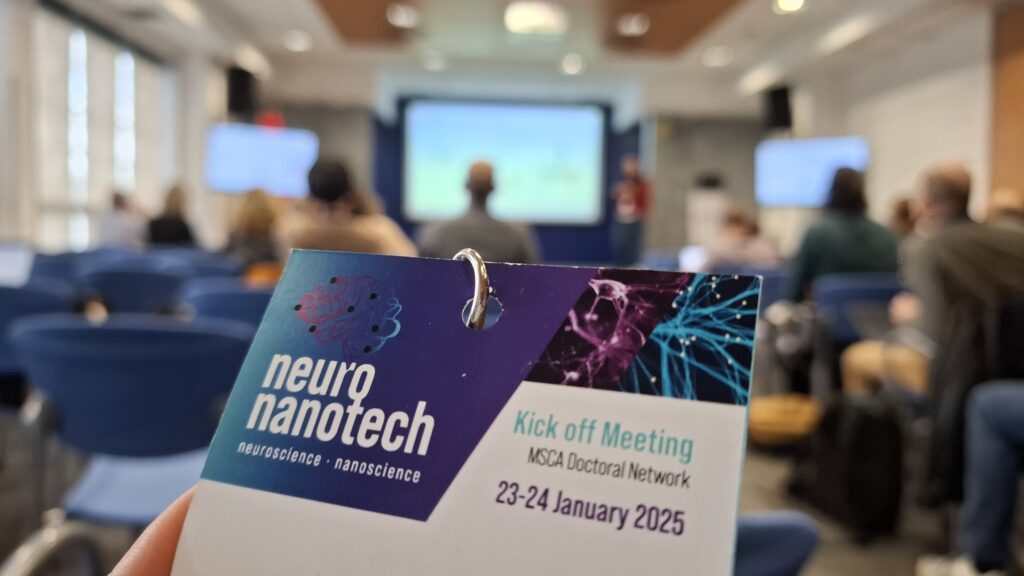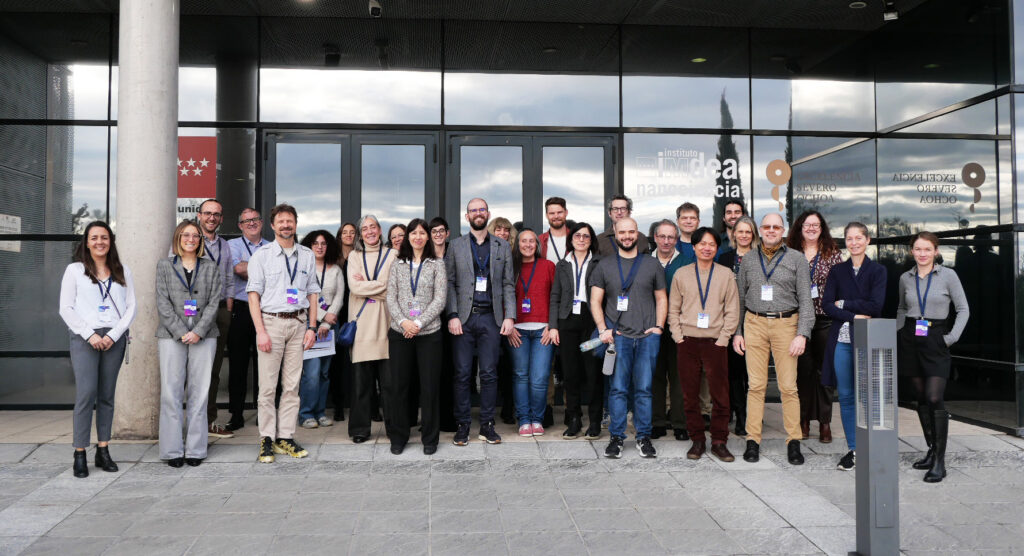
The official launch of the NeuroNanoTech Doctoral Network took place in Madrid on January 23-24, 2025, bringing together the project’s 10 partners and 15 collaborators to mark the beginning of an ambitious initiative aimed at tackling one of the major challenges of Europe’s ageing population—neurological diseases.
Supported by Horizon Europe’s Marie Skłodowska-Curie Actions (MSCA) Doctoral Networks with a budget of ca. € 3 million, NeuroNanoTech will provide eleven PhD researchers with a cutting-edge, interdisciplinary training environment. The project focuses on the development of nanostructured flexible neural interfaces that improve tissue integration, minimize foreign-body reactions and scarring, and enhance stable stimulation treatments. These advancements have the potential to revolutionize both clinical applications and the healthcare industry.
The NeuroNanoTech consortium brings together leading experts in nanotechnology, device engineering, neuroscience, and clinical neurology. The research projects within the network will be highly interconnected, ensuring a multidisciplinary approach that bridges academia and clinic. The programme offers innovative training, emphasizing applications of research and preparing PhD candidates for careers in both academic and non-academic sectors.
Through collaboration with universities, research institutes, hospitals, companies, and social organizations from nine different countries, NeuroNanoTech will equip its researchers with advanced scientific knowledge and transferable skills essential for innovation and long-term employability. This initiative aligns with the broader mission of the MSCA Doctoral Networks, which fosters international mobility, cross-sectoral collaboration, and knowledge exchange between research disciplines.
About MSCA Doctoral Networks
MSCA Doctoral Networks support innovative doctoral training through international, intersectoral, and interdisciplinary partnerships. They aim to enhance the career prospects of researchers and respond to Europe’s strategic research and innovation needs.
The Marie Skłodowska-Curie Actions (MSCA) programme is the European Union’s flagship fellowship initiative, designed to support researchers at all career stages. By encouraging cross-border mobility and collaboration, MSCA helps researchers develop international networks and gain experience in diverse research environments. It plays a pivotal role in breaking down barriers between academia, industry, and business, fostering innovation and excellence in European research.
Call for PhD Positions Opening Soon
As part of its commitment to training the next generation of researchers, NeuroNanoTech will soon launch a call for applications to fill eleven PhD positions. More details will be available on the project’s official website in the coming weeks.

Source: IMDEA Nanociencia (coordinator).